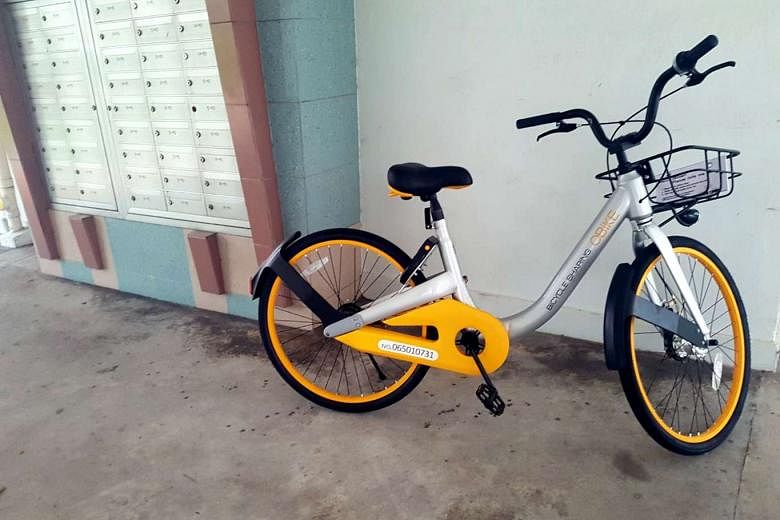With their convenience and low rental charges, dockless shared bicycles can become an integral part of Singapore's transport ecosystem.
All one has to do is use a mobile app to lock and unlock the bicycles, which can be collected from or returned at any bike rack or parking space. These two-wheelers can be effective in solving the first- and last-mile commute between home and transport nodes, such as MRT stations and bus interchanges, giving another push towards a car-lite society.
But this potential can be blunted by abuse and vandalism. In recent months, reports on social media have shown the bicycles being chained up outside homes, and dumped at locations such as canals. One was even repainted in an apparent bid by the vandal to appropriate the bike.
Thankfully, these misdemeanours are in the minority, according to bike-sharing start-ups. ofo has said damaged bicycles account for less than 1 per cent of its fleet here, oBike said such cases are "rare", while Mobike has not found any of its bicycles intentionally damaged or misused.
Nevertheless, the success of bike-sharing relies heavily on bicycles being available and reliable. For commuters to alter their travel habits and do without their cars, they need to know they can find a bicycle - one which works and is available for rent - that can take them to the train station, for example.
While dockless shared bicycles debuted in Singapore only in January, they have been around in cities such as Beijing from as early as two years ago. But it has been a bumpy experience for users. In a poll by China's Youth China Daily newspaper, published earlier this month, over half (50.5 per cent) of the 2,000 respondents said damaged bicycles resulted in their commutes being inconvenienced.
Will this be the experience for Singaporeans as well? Hopefully not. Bike-sharing start-ups have imposed penalties on abusive users. Experts say social media reports can help to curb misuse.
Dockless bicycle-sharing is still in its early days here, and there is still a question mark over whether it can contribute towards a car-lite Singapore.



